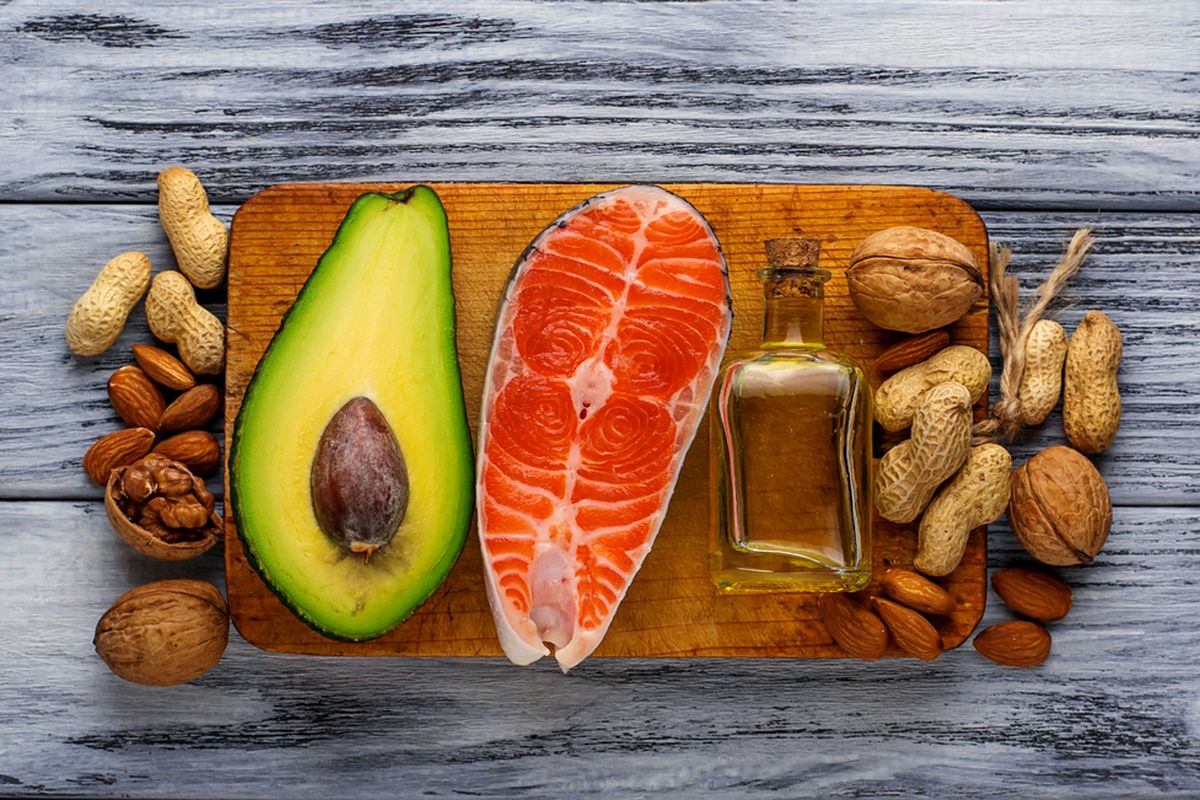novellainstitute.com – Fats are an essential part of a balanced diet, but not all fats are created equal. Healthy fats, unlike unhealthy trans or saturated fats, provide energy, support cell function, and aid in nutrient absorption. Incorporating healthy fats into your diet can improve heart health, brain function, and overall well-being. This article explores what healthy fats are, their benefits, and practical ways to include them in your meals.
What Are Healthy Fats?
Healthy fats include monounsaturated and polyunsaturated fats, such as omega-3 and omega-6 fatty acids. These fats are found in foods like avocados, nuts, seeds, olive oil, and fatty fish. Unlike trans fats, which increase bad cholesterol (LDL), healthy fats help lower LDL while raising good cholesterol (HDL). They also reduce inflammation and support metabolic health.
Benefits of Healthy Fats
-
Heart Health: Omega-3s, found in fish like salmon, reduce the risk of heart disease by lowering triglycerides.
-
Brain Function: Fats make up 60% of the brain, and omega-3s support memory and cognitive health.
-
Nutrient Absorption: Fats help absorb fat-soluble vitamins (A, D, E, K) for better immunity and skin health.
-
Energy Source: Fats provide 9 calories per gram, offering sustained energy for daily activities.
-
Hormone Regulation: Healthy fats are crucial for producing hormones that regulate metabolism and stress.
Sources of Healthy Fats
-
Monounsaturated Fats: Olive oil, avocados, almonds, cashews, and peanut butter.
-
Polyunsaturated Fats: Salmon, mackerel, walnuts, flaxseeds, and chia seeds.
-
Plant-Based Oils: Canola, flaxseed, and hemp oil are rich in omega-3s and omega-6s.
-
Whole Foods: Eggs, dark chocolate (70%+ cocoa), and coconut oil (in moderation) also provide healthy fats.
How to Incorporate Healthy Fats
-
Cook with Olive Oil: Use extra virgin olive oil for sautéing vegetables or as a salad dressing. Limit to 1-2 tablespoons daily to avoid excess calories.
-
Snack on Nuts and Seeds: A handful of almonds or chia seeds provides fiber, protein, and fats. Avoid salted or sweetened varieties.
-
Add Avocado: Spread avocado on toast or add it to smoothies for creamy texture and heart-healthy fats.
-
Eat Fatty Fish: Include salmon or mackerel in your diet twice a week for omega-3s. Grill or bake to keep it healthy.
-
Use Nut Butters: Spread almond or peanut butter on fruit or whole-grain bread for a balanced snack.
-
Incorporate Flaxseeds: Add ground flaxseeds to oatmeal or yogurt for a nutty flavor and omega-3 boost.
-
Choose Whole Eggs: Eggs are nutrient-dense and contain healthy fats in the yolk. Limit to 1-2 eggs daily if concerned about cholesterol.
-
Try Dark Chocolate: A small square of dark chocolate satisfies sweet cravings while providing antioxidants and fats.
-
Balance with Other Nutrients: Pair healthy fats with vegetables, lean proteins, and whole grains for a balanced meal.
-
Monitor Portions: Fats are calorie-dense, so stick to recommended servings (e.g., 1/4 avocado or 1 oz of nuts).
Tips for Success
-
Read Labels: Avoid foods with “partially hydrogenated oils,” which indicate trans fats.
-
Limit Saturated Fats: Found in red meat and butter, these should be consumed sparingly (less than 10% of daily calories).
-
Store Oils Properly: Keep olive oil in a dark, cool place to prevent oxidation.
-
Balance Omega-3 and Omega-6: Aim for a 1:4 ratio to reduce inflammation, as modern diets often have too much omega-6.
-
Consult a Dietitian: If you have specific health conditions, a professional can tailor fat intake to your needs.
Common Myths
-
Myth: All fats make you gain weight. Fact: Healthy fats in moderation support weight management by promoting satiety.
-
Myth: Low-fat diets are healthier. Fact: Cutting healthy fats can lead to nutrient deficiencies and cravings.
-
Myth: Coconut oil is a superfood. Fact: While it contains healthy fats, it’s high in saturated fat and should be used sparingly.
Sample Meal Ideas
-
Breakfast: Greek yogurt with chia seeds, berries, and a drizzle of honey.
-
Lunch: Grilled salmon salad with avocado, spinach, and olive oil vinaigrette.
-
Snack: Apple slices with almond butter or a handful of walnuts.
-
Dinner: Baked chicken with roasted vegetables cooked in canola oil and a side of quinoa.
Healthy fats are vital for optimal health, from supporting your heart to enhancing brain function. By choosing foods like avocados, nuts, fish, and olive oil, you can enjoy their benefits while keeping your diet balanced. Start small by swapping unhealthy fats for healthier options and monitor portions to avoid excess calories. With mindful choices, healthy fats can transform your nutrition and well-being.

